Australia approves the North West Shelf Gas Plant to operate until 2070
Australia approved Woodside's application to operate Australia's second largest and oldest liquefied gas plant, the LibNaGa Plant, until 2070. The new emission rules were imposed to reduce its environmental impact. North West Shelf, a plant in Western Australia, is expected to emit up to 4.3 million metric tons carbon dioxide over its lifetime. Critics say this will endanger nearby ancient rock art as well as set back climate change efforts. Murray Watt, the Environment Minister, told a Friday press conference that Woodside had accepted a number of conditions to protect Indigenous art.
Min says that seismic work will begin on gas fields shared between Trinidad and Venezuela.
Stuart Young, Trinidad and Tobago's energy minister, said on Facebook on Friday that seismic work is expected to begin in the next few days at the offshore gas fields shared between Venezuela and Trinidad and Tobago. Venezuela issued a license in July allowing for the development of the Cocuina Field, its side of reservoir. In early 2014, the U.S. also approved this project. It will be developed by Britain’s BP and Trinidad’s National Gas Company. Cocuina and Manakin, whose Venezuelan part belongs to the Plataforma Deltana offshore gas project, which is currently idle, have 1 trillion cubic feet in proven reserves of gas.
New Pipeline Coming Offshore Equatorial Guinea
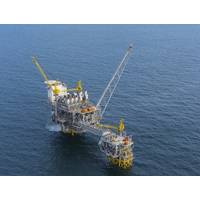
Noble Energy and partners will build a pipeline linking Equatorial Guinea's offshore gas fields to an onshore liquefied natural gas (LNG) plant to boost exports, the African nation's government said on Monday.Under a deal with the government the 70 km (44 miles) pipe will have capacity for 950 million cubic feet of gas per day from fields operated by Noble and will be ready in the first quarter of 2021.Once liquefied at the export plant, which is run by Marathon Oil, the gas will be shipped to markets across the globe.Sonagas GE, the state-run gas company, will increase its stake in the project to 30 percent from 25 percent.The gas will come
Total Seeks Exit from Dutch Upstream
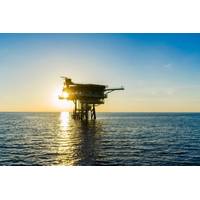
Total has launched the sale of its offshore gas fields in the Netherlands, a move that would mark the French energy giant's exit from Dutch upstream production after 55 years, industry and banking sources said.The Paris-based company hired investment bank Jefferies in December to run the process that could raise $300 to $400 million, according to the sources.Total had no immediate comment and Jefferies declined to comment.Total's platforms in the Netherlands are nearing the end of their life after gas reserves have dwindled in recent decades.Many of the platforms will require dismantling…
Energean asks Cyprus to Import Israeli Gas via New Pipeline
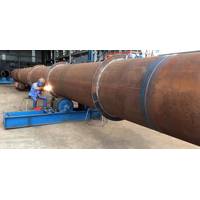
Energean is seeking approval from Cyprus for the Greek oil and gas firm to build a pipeline from its Israeli offshore gas fields and import 0.5 to 1 billion cubic metres of gas a year to the island, Energean's chief executive said on Thursday.Energean, which listed on London's main stock exchange this year, has committed $1.6 billion to the Karish and Tanin fields which have potential reserves of 2.4 trillion cubic feet of natural gas and 32.8 million barrels of light oil and condensate.It estimates the five blocs it owns around Karish and Tanin contain an additional 5 trillion cubic feet of gas.
Shell to Sell Tunisian Gas Assets
Royal Dutch Shell is seeking to sell its gas fields in Tunisia for some $500 million, sources said, as the Anglo-Dutch company pushes forward with its vast disposal programme. The Tunisian assets, accounting for some 65 percent of the North African country's gas production, were acquired as part of Shell's $54 billion take over of BG Group last year. The assets include two offshore gas fields -- Miskar, fully owned by Shell and Hasdrubal, 50 percent owned by Shell -- as well as an onshore production facility. In 2015, the fields produced 30,000 barrels of oil equivalent per day, according to BG Group's annual report of the same year.
South Africa Mulls First Shale Gas Exploration Licences
South Africa's government may award its first shale gas exploration licences by the end of September, after environmental objections delayed the process, a senior government official said on Monday. The five licence applications under review are for exploration in the semi-arid Karoo basin. Environmentalists criticised plans to work in the sparsely populated region, known for its rugged scenery and home to rare species such as the mountain zebra and riverine rabbit. Royal Dutch Shell, Falcon Oil and Gas and Bundu Gas & Oil are among five firms whose applications were being reviewed by the regulator…
Changing the Landscape of LNG Production
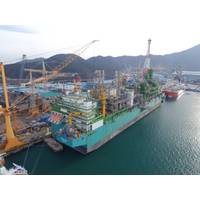
Successful completion of the Petronas Floating LNG facility (PFLNG) Satu is a milestone for the oil and gas industry and for the Malaysian energy giant. Designed by consortium leader TechnipFMC and fabricated at the Daewoo Shipbuilding and Marine Engineering yard in South Korea, PFLNG Satu achieved the first-ever production of LNG offshore in December 2016. The 365-meter by 60-meter facility processes, produces and offloads LNG in situ, directly above natural gas reservoirs. FLNG allows the monetization of remote, marginal and stranded offshore gas fields that cannot be developed economically via conventional means.
Energean to Spend $1.5 bln on Israeli Offshore Gas Deal
Greek company Energean Oil & Gas plans to build its own production system in the eastern Mediterranean at a cost of up to $1.5 billion to tap two Israeli offshore gas fields, the group's chief executive said on Wednesday. Greece's only oil producer is also looking to bring a financial partner into the project to develop the Tanin and Karish fields which are situated in deep waters around 100 kilometres (62 miles) off Israel's coast and have combined gas reserves estimated at 2.4 trillion cubic feet. Energean bought Karish and Tanin last August for $148 million from U.S.-Israeli partners Delek Group and Noble Energy…
Energean to Buy Two Israeli Gas Fields
The partners in Israeli offshore gas fields Tamar and Leviathan have agreed to sell their rights in two smaller fields to Ocean Energean Oil and Gas Ltd for $148.5 million to comply with a government requirement. Delek Group, which has controlling interests in several gas fields in the eastern Mediterranean, is being forced by the government to sell off some assets in an effort to open the sector to competition. Energean will buy Texas-based Noble Energy's 47.06 percent stake in the Tanin and Karish fields and the rest from Delek subsidiaries Avner Oil Exploration and Delek Drilling, Avner said in a statement on Wednesday.
Daewoo's World’s First Floating LNG Plant for Petronas
Daewoo Shipbuilding & Marine Engineering completed a floating liquefied natural gas (FLNG) project called “floating LNG plant” for the first time in the world. The PFLNG SATU was named at a ceremony held by Petronas, together with its strategic partners Daewoo Shipbuilding & Marine Engineering Co. Ltd (DSME) and Technip, at the DSME shipyard here in Okpo, South Korea. The FLNG was named “Satu” which means “first” in the Malay language. Satu, located on E3 Berth of the Okpo Shipyard, is the world’s first such installation which is capable of exploiting natural gas from deep sea, as well as refining, liquefying, storing, and stevedoring.
Total Starts up Vega Pleyade Offshore Project, Argentina
Total has started up production at the offshore Vega Pleyade gas and condensate field in the Tierra del Fuego region of Argentina. Operated by Total, the project will have a production capacity of 10 million cubic meters of gas per day (70,000 barrels of oil equivalent per day (boe/d)). "Vega Pleyade is Total's second start up this year and will contribute to our production growth in 2016 and for the years to come,” commented Arnaud Breuillac, President Exploration & Production. “The project consists of the development of one of the largest offshore gas fields in Argentina and is the world's southern-most gas development.
Zohr Discovery Could end Egypt LNG Imports
Egypt hopes to stop importing LNG by 2020; Zohr has potential 30 trillion cubic feet (tcf) of gas. The huge Zohr natural gas field discovered by Eni off the coast of Egypt, could tip the country back into exporting liquefied natural gas (LNG), making the bright spot of demand it has created in an oversupplied global gas market short-lived. Once an energy exporter, declining oil and gas production and increasing consumption had turned Egypt into a net energy importer, but the discovery of the largest gas fields ever found in the Mediterranean could reverse this.
Driving Innovation: the Unmanned FLNG
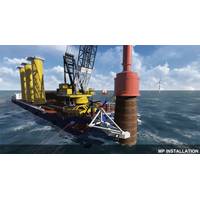
DNV GL developed a new unmanned floating LNG concept that it claims overcomes many of the challenges faced by operators looking to unlock the potential of remote offshore gas fields. Called Solitude, DNV GL said the concept demonstrates how technological advances can be combined into a solution that offers an estimated 20% reduction in annual OPEX, only adding a few percent increase in CAPEX and at the same time increasing overall safety. Foreseeing the need for more remote projects to be able to overcome even more challenging cost barriers…
Unmanned FLNG: ‘The Future of LNG Technology’
DNV GL has developed a new unmanned floating LNG concept that it says overcomes many of the challenges currently faced by those looking to unlock the potential of remote offshore gas fields. Called Solitude, the concept demonstrates how technological advances – most of the technology already within reach - can be combined into a solution that offers some 20 percent reduction in annual OPEX, only adding a few percent increase in CAPEX and at the same time increase the overall safety. FLNG technology is developing rapidly as part of the industry’s quest for resources in more remote waters, DNV GL noted.
India Denies Reliance from $2.4b Cost Recovery
India has disallowed Reliance Industries Ltd from recovering $2.376 billion invested to develop offshore gas fields in the D6 block on the country's east coast as output has fallen drastically and is way below the promised volumes, the oil minister said. Under India's exploration policy, the government allows companies to first recover their costs from oil and gas revenue, and subsequently share profits with the government. Reliance had set up facilities to produce 80 million cubic metres a day (mmscmd), but actual gas production has been much lower…